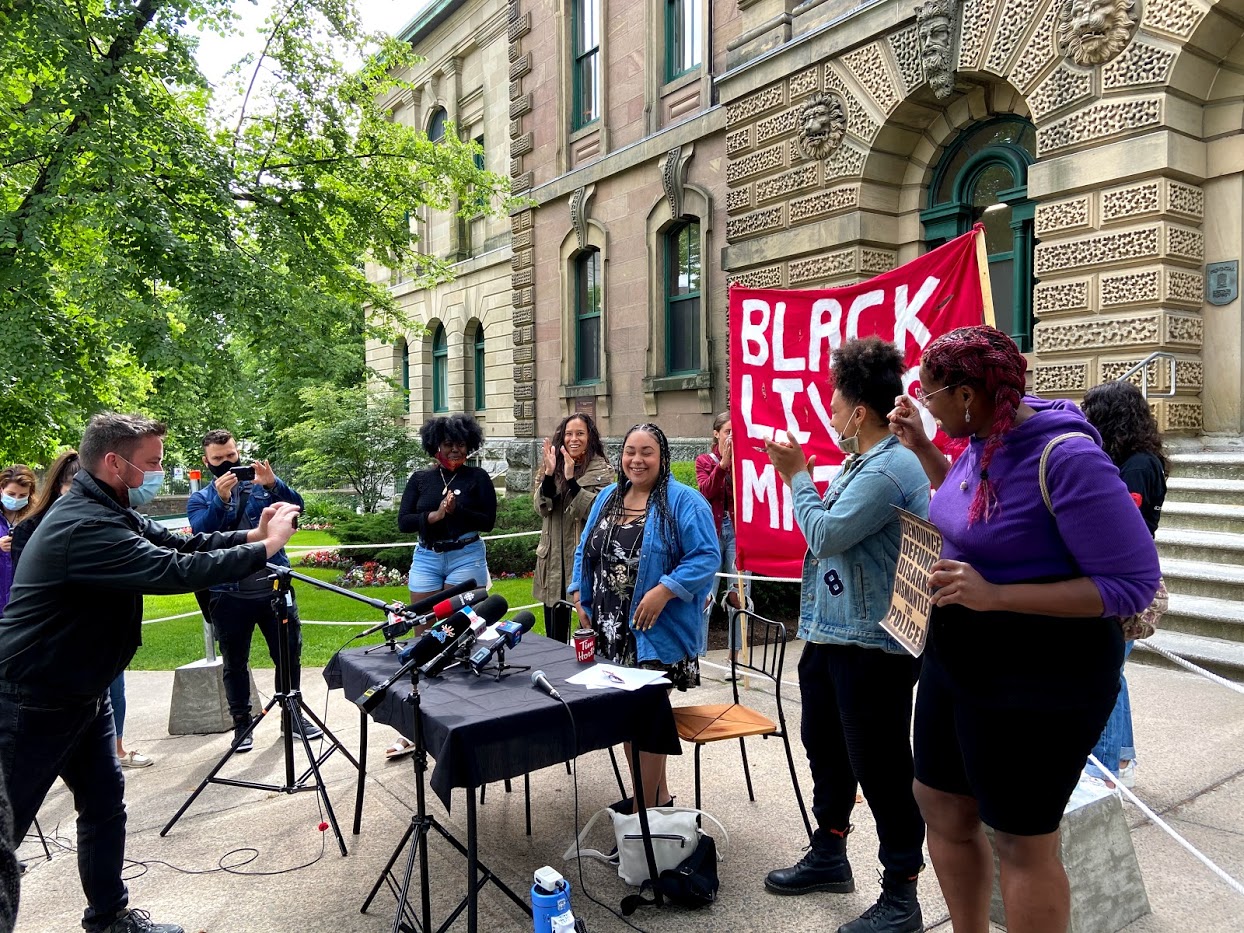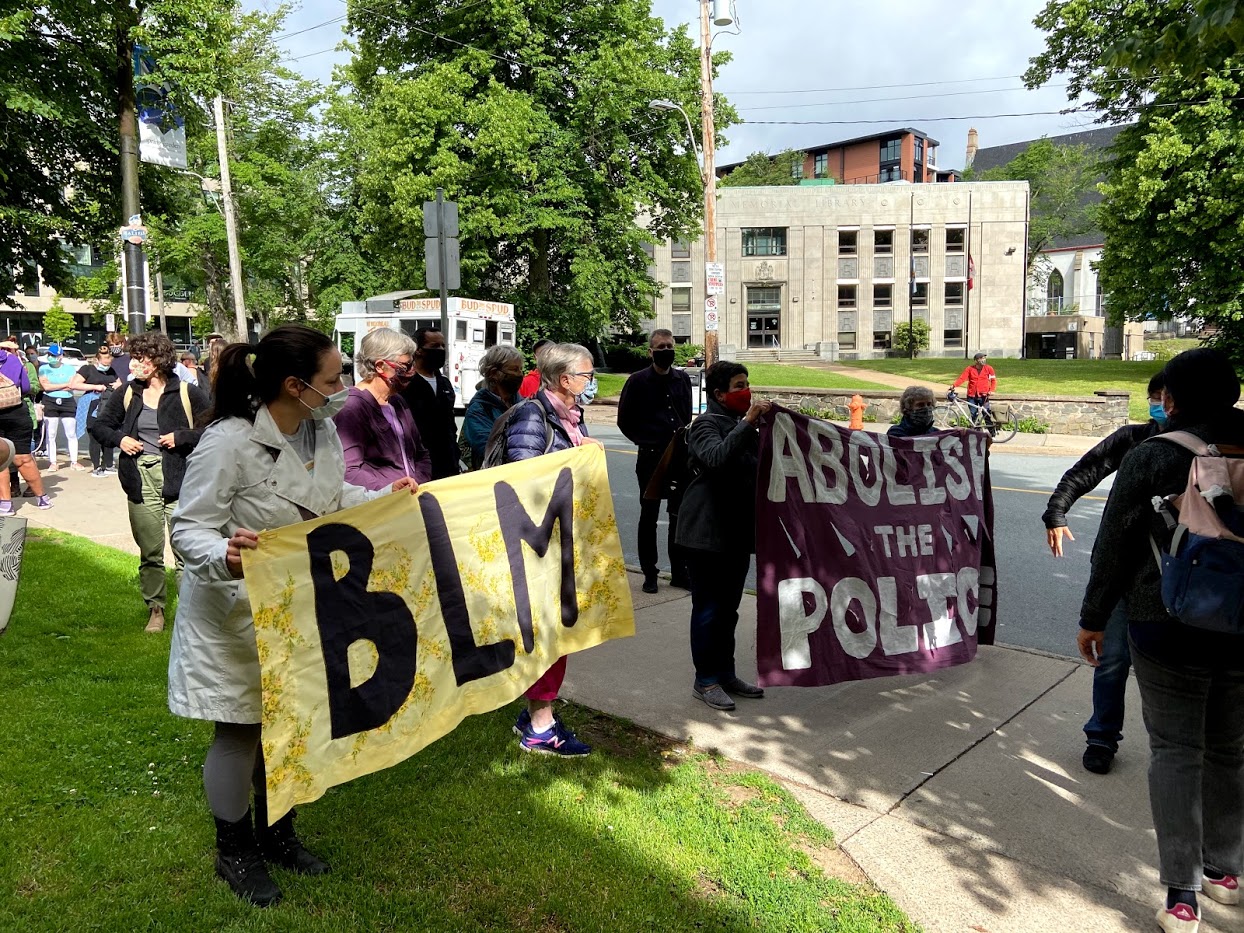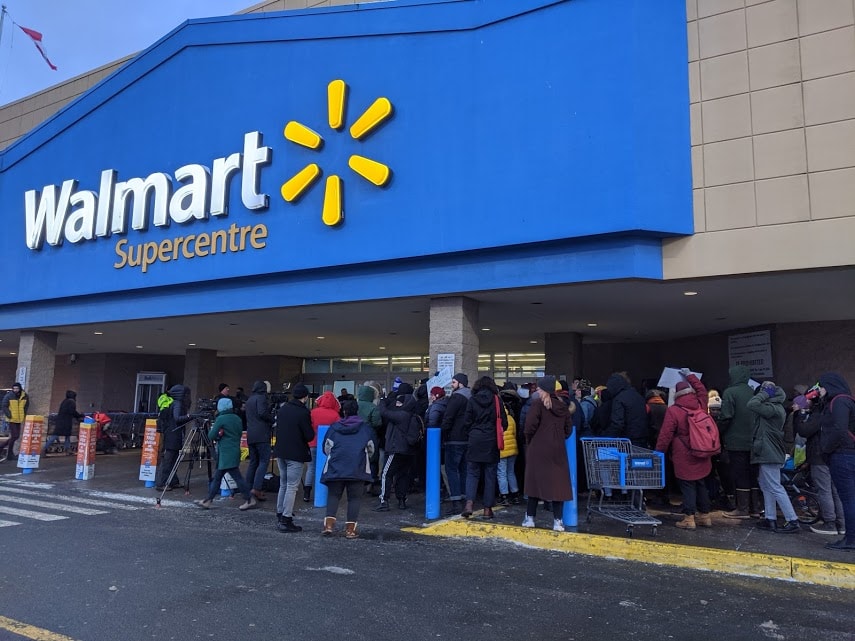
KJIPUKTUK (Halifax) – In April 2019, Halifax’s interim chief of police, Robin McNeil, was faced with a scathing report by Scot Wortley, a University of Toronto criminologist. Wortley found that street checks (or carding) by Halifax police disproportionately affected Black Nova Scotians. In fact Black Nova Scotians were six times more likely to get checked than their white counterparts.
When the municipality’s Board of Police Commissioners lightly suggested an apology, McNeil haughtily claimed “it would appear disingenuous” to apologize to the Black community. Defending his position, he said he did not want to “minimize the thought” that an apology by the police was in order, but “issues related to organizational apologies are very complex and sensitive.”
A short seven months later, the new Halifax police chief, Dan Kinsella, had to issue an official apology to Black Nova Scotians that was supposed to herald the end of police street checks and racial profiling. Mere weeks before Mark Furey, the minister of Justice, had ordered the end to street checks. On Nov 29, 2019, Kinsella publicly admitted to the Black community that “far too many times we have failed you.” In his sombre, preacher-like tone, Kinsella apologized because Halifax police had “mistreated, victimized, and revictimized” them.
Cops vs Santina Rao– beating of a Black mother at Walmart
A mere six weeks later, in mid-January 2020, at least two Halifax police officers jumped Santina Rao, a young Black mother in front of her three-year-old daughter and baby son in the toy aisle at Walmart in the West End Mall. The family was out shopping. The cops broke Rao’s wrist, gave her a black eye and a concussion. Despite the fact that Rao had already paid for merchandise she had from the electronics section of the store, and committed no crime, the police assaulted her. Then they charged her with disturbing the peace, resisting arrest and assaulting an officer.
In the last seven months, Rao has had to live with serious injuries caused by the Halifax Regional Police (HRP) officers. With a broken wrist, she had to rely on family and others to help her with her children. She had to worry that if she got into trouble or was arrested for just about anything, she might lose her children to Social Services—that’s a reality for many racialized people like Rao.

So far, there has been no apology from police Chief Kinsella. For months he has been silent except to remind us that SIRT (the police watchdog agency) is still investigating. Kinsella said the details about Rao’s arrest “… will certainly come out, and we’ll make whatever steps we need to take, correction or otherwise when we move forward…. Communication and de-escalation are the most important things that have to occur.”
“Communication and de-escalation”
No one seriously believes what happened to Santina Rao was a good example of police “communication and de-escalation skills”. Kinsella also maintained his officers had received anti-Black racism, diversity and bias training and that police supervisors had received ‘refresher’ training. But criminology professor Scot Wortley disagrees. In an interview, Wortley said often police training “has no teeth” and involves officers checking a box to say they’ve attended, rather than being tested on what they’ve learned.
“I think we need to go beyond simple lip service to these issues,” Wortley said. “There needs to be greater transparency with respect to data collection to demonstrate that all people are treated equally.”
On Tuesday, almost seven months to the day of Rao’s arrest, and on the morning of what should have been her trial, the Crown decided not to proceed with the case against her. A petulant crown said there was no realistic chance for conviction and that it would not serve the public’s interest to prosecute Santina Rao. Gorden Allen, Rao’s lawyer, observed, “We felt she was stopped [at Walmart] without reason and in fact she was stopped contrary to what the Wortley report said and Justice Minister Furey said, that there would be no more street checks.”
Did Chief Kinsella apologize? Of course not. But he wanted “to acknowledge the hurt this incident has caused to all involved.”
“This is a particularly difficult time for police-community relationships. The vast majority of HRP members serve this community with compassion, respect and an unerring sense of duty to serve. We also recognize there is more to be done and we are firm in our commitment to do better,” Kinsella said.
What? How dare he? Rao did nothing but fight back against an illegal arrest. How dare he give the passive boiler-plate response that the police simply want to do “better”?
It seems no amount of training, sensitivity awareness, simulations or stern warnings are going to change the police, or their chief.
Now the police, in assaulting Rao and falsely charging her, have opened themselves up to legal action against them. We know from the Halifax police union’s collective agreement, that individual police officers are covered for any misbehaviour in the “line of duty.”
It seems no amount of training, sensitivity awareness, simulations or stern warnings are going to change the police, or their chief.
Let that sink in.
The police are a command and control outfit that tends to punish any of their own who step out of line, or think for themselves. The police who attacked Rao are licking their metaphorical wounds this week — but what is Chief Kinsella doing?
We’ve all seen how far Kinsella’s November apology against street checks has gotten us. It does not merit the column inches devoted to it in the newspapers.
Let’s look at Walmart’s record of crimes and misdemeanours
What about an apology from Walmart? Surely they should be a sorry, surely there should be something to indicate they did wrong in routing their store security and then calling the HRP on Rao that January day.
Let’s look at Walmart’s record of other crimes and misdemeanours.
Ever heard of “dead peasant” life insurance, also called “janitors insurance” or COLI “corporate owned life insurance”? This type of life insurance used to be called key person insurance; it makes a company the key beneficiary of a life insurance policy taken out by the company. If a company executive dies, then insurance pays the death benefit to the company. Walmart bested that. Over the last three decades, Walmart took out insurance on at least 350,000 low-wage employees in the US, and who knows how many in Canada. When any employee died, from whatever cause, Walmart received between $65,000 and $250,000 as a death benefit. Not a cent ever went to the dead employee’s family. Take a look at this cut from Michael Moore’s 2009 film, Capitalism: A love story.
Racial profiling
In Canada, Walmart also never apologised for racial profiling of Indigenous people at a Thompson Manitoba store last week. As a Grand Chief Garrison Settee, of the Manitoba Keewatinowi Okimakanak (MKO) which represents 26 First Nations in northern Manitoba said,
“In one instance, a First Nations man, who never uses alcohol, was told he cannot come into the store because he looks like someone who has been drinking. Imagine being told you look as though you are intoxicated when, in fact, you do not use alcohol!”
The man, Wayne Constant of Thompson had walked into Walmart to buy dog food. He was stopped by a security guard and told he could not enter. After an argument, Constant was allowed into the dog food aisle. Then the manager and security guard demanded he pay for items and leave quickly. Constant said, “It hurts a lot when a person says, ‘You’re nothing but a drunk, you don’t belong in this society.’ It took me back to residential schools.”
A week earlier, an Indigenous couple were asked by security to remove their sunglasses when they went into the same store. The security guard said he wanted to look at their eyes to see if they’d been drinking.
Even when the shoppers threatened to take their cases to the Manitoba Human Rights Commission, Walmart’s only response was, “Walmart is committed to providing a safe and inclusive environment for our associates and our customers.” No apologies.
Just a note, Indigenous people make up 43.5% of the population in Thompson and surrounding areas.

At the height of the Black Lives Matter movement in late June 2020, Walmart’s online shopping platform advertised t-shirts which read “All Lives Matter” “Blue Lives Matter” and even “Green Lives Matter”. Some shoppers became irate and started a campaign against Walmart.

Cheryl Thompson, who is Black, is a professor at Toronto’s Ryerson University. She said slogans like All Lives Matter and Blue Lives Matter are reactions embraced by those “trying to resist” the BLM movement’s call for police accountability and an end to systemic racism.
“It’s the resistance to the resistance, basically,” Thompson told CBC News. ” ‘Black Lives Matter’ is literally a call … to stop killing us…. When I see those T-shirts, they miss that narrative. It’s actually a big thumb in the face … to the intention of Black Lives Matter.”
In a statement, Walmart Canada said: “We stand against any form of racism or discrimination. We promote listening, seeking to understand and embracing individual differences.” Really?
Clearly Walmart’s bottom line does not depend on irate customers who complained about the pro-police blue t-shirts which were sold online.
Walmart has never apologized for anything – dead peasant insurance, racism against Indigenous people, or insulting t-shirts. I guess we can’t hold our breath about a long overdue apology – and maybe some flowers – for Santina Rao.
Instead the biggest retailer in the world will simply pay what’s required when the courts decide Rao was pushed and humiliated by their own security guards and then turned over to the Halifax police for a beating – though she committed no crime.
See also: Judy Haiven: Who trusts the police and their union?
Judy Haiven is on the steering committee of Equity Watch, an organization that fights discrimination, bullying and racism in the workplace. Contact her at equitywatchns@gmail.com
With a special thanks to our generous donors who make publication of the Nova Scotia Advocate possible.
Subscribe to the Nova Scotia Advocate weekly digest and never miss an article again. It’s free!



